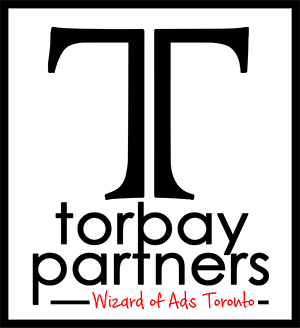Every business owner has a committee. The committee means well, but ultimately it is the committee that will keep you from achieving greatness. I presented this talk for the first time at a Wizard of Ads Partner meeting. At the end of the talk, Roy demanded that I go across to his video studio and present it to the camera. Like, now. Fifteen minutes later I'd done it a second time, this time on video. So here it is, in all its youthful glory.
The Whale Conundrum - Part 2: The Reckoning
In my last post, I explained how to have a hugely successful company and used 3 different categories as examples for how to do it. Financial Planning, Retail Boat Sales, and Hospitality. It works in nearly every category, but I chose these three because I have experience in all of them. The plan involves 4 basic steps.
- Target the the entry-level, the demographic bulge, the average bloke. There's a metric shit-ton of these consumers out there but nobody wants them. Everyone is focused on the the big-spenders. You can win everyone else with a great advertising campaign that aims at the middle. Don’t do that part yourself; you’ll mess it up. Hire a pro.
- Do a great job serving your customers. Don’t treat them like small-timers. Give them an excellent experience. Make your offering better. Really work hard to do this.
- Wait. Go back to Step 2 while you’re waiting.
- Sell your company for millions of dollars and enjoy the fruits of your labor.
Q: Can I have a hugely successful million-dollar company and skip the first three steps?
A: Absolutely 100% yes.
Q: How?
A: Easy. Jump straight to step 4, only instead of being the seller you are now the buyer. Simply purchase the hugely successful company for millions of dollars and you're all set. The only downside to this is you’ll need millions of dollars.
If you don’t have the means to buy a company where someone else has done the work and the waiting already, then you’re going to have to do it yourself. And you must resist the temptation to ask your ad guy to take you directly to the part where you have loyal customers with deep pockets.
Advertising brings transients, not loyal customers.
It's your job to turn a transient into a regular, not mine.
High-end customers are few and far between. And they belong to businesses that have passed Step 3. They are simply not gettable any other way, and anyone who says they are is either ignorant or disingenuous.
Consider Hyundai
I’m old enough to remember the Pony. Hyundai came to North America in the early 80s with one car. It was called the Pony, and it was cheap. Super cheap. Thousands less than the entry-level of other carmakers.
It was kind of a crap car, but all entry-levels were crap. It was going up against the K-car which was turbo-crap.
Their second North American car was the Excel. Also cheap, it sold in the United States for $4,995. But it had something special: Standard Power Windows. This was back when the whine of power-windows was a status symbol unique to high-end cars. The Excel had power windows and power locks. That was cool. Power windows and locks wouldn’t become common at the entry-level for another fifteen years.
Customers of entry-level cars tend to be young, easily targetable, not particularly loyal and not especially well off. But there’s one thing they do with staggering consistency. They grow up. They get older. They earn more money. They become loyal to brands and form relationships with them.
It took Hyundai 30 years to become associated with high-quality automobiles. They were committed to serving their entry-level customer, and ready for good long wait.
Would anyone consider Hyundai a cheap car company today? A quick search reveals this Hyundai Equus will run you a cool $69,000. By contrast, you’ll pay $39,000 for a new BMW 328i. Who’s the high-end car company now?
So there’s the formula. My partners and I can guide you through steps 1-3. The question is, do you have the commitment, and the patience, to reach step 4?
The Whale Conundrum - Part 1
Telling Consumers *How* To Get In Touch, Rather Than *Why*
How often do you see (or hear) a business spending so much of their advertising space giving directions, hours of operation, phone numbers, or any other methods of connecting the dots between the consumer and the business’s front door? This mistake made over and over again. The answer is simple, and it’s based on the point of view of the person making it.
Read moreThe Monday Morning Memo - Why You Should Read It
Roy H. Williams built an empire by spreading his wisdom in little bite-sized pieces over many, many years. His Monday Morning Memo has been required-reading for small and medium sized owner operated businesses for two decades.
Read moreAds That Qualify Customers... and do nothing else
HAVE YOU BEEN INJURED?
Is that enough to bring them to you?
The best examples of this, right now anyway, are personal injury attorneys. Their ads are amazingly consistent from one to another. They have headlines like, "Have you been injured?" followed by their phone number or website. And in most cases, this is the entirety of their message. Qualifying someone as a potential customer is more important to this lawyer than building his brand. What would advertising be like if everyone used this model to build their message.
Read more



